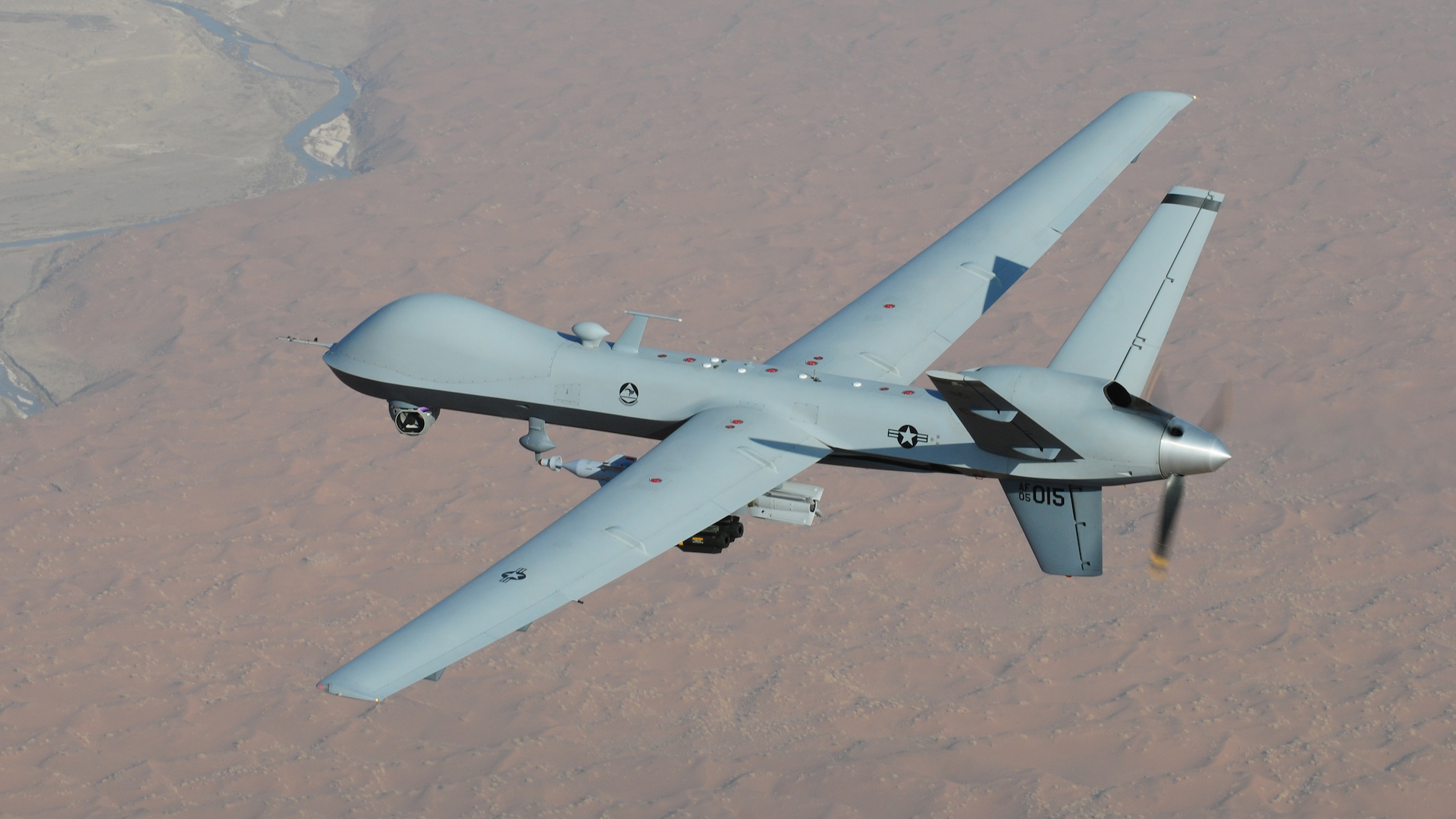

An Air Force MQ-9 Reaper drone crashed into the Black Sea on Tuesday after it was intercepted by two Russian fighters, one of which collided with the drone, U.S. military officials announced on Tuesday.
“Our MQ-9 aircraft was conducting routine operations in international airspace when it was intercepted and hit by a Russian aircraft, resulting in a crash and complete loss of the MQ-9,” Air Force Gen. James B. Hecker, commander, U.S. Air Forces Europe and Air Forces Africa, said in a statement. “In fact, this unsafe and unprofessional act by the Russians nearly caused both aircraft to crash.”
The incident occurred when two Russian Su-27 “Flanker” aircraft “conducted an unsafe and unprofessional intercept” of the MQ-9 that was flying in international airspace, U.S. European Command announced in a news release.
Subscribe to Task & Purpose Today. Get the latest military news, entertainment, and gear in your inbox daily.
At roughly 7:03 a.m. local time, one of the Russian fighters struck the MQ-9’s propeller, causing the U.S. military to bring the drone down over international waters, the news release says.
“Several times before the collision, the Su-27s dumped fuel on and flew in front of the MQ-9 in a reckless, environmentally unsound and unprofessional manner,” the news release says. “This incident demonstrates a lack of competence in addition to being unsafe and unprofessional.”
Since 2014, Russia has occupied Crimea and other parts of Ukraine that border the Black Sea. However, the MQ-9 Reaper was “well clear of the territory of Ukraine” in international airspace when it was intercepted by the two Russian fighters, Air Force Brig. Gen Patrick Ryder, a Pentagon spokesman, told reporters on Tuesday.
“In terms of the mission of the MQ-9, it’s an ISR [intelligence, surveillance, and reconnaissance] platform,” Ryder said at a Pentagon news conference. “These aircraft have been flying over the Black Sea region for some time, to include before the current conflict started. It is an important and busy waterway, and so it is not an uncommon mission for us to be flying in international airspace.”
The two Russian fighters flew in the vicinity of the MQ-9 for roughly 30 to 40 minutes before one of the Su-27s collided with the drone’s propeller, making it uncontrollable, so the U.S. military made the decision to crash the unmanned aircraft in the Black Sea, Ryder said.
So far, Russia has not recovered the drone’s wreckage, said Ryder, who declined to answer when asked if U.S. military officials have seen indications that the Russians are preparing to retrieve the downed MQ-9.
Ryder also said he had no information about whether the Navy would try to recover the drone.
The crash is the latest example of Russian pilots taking dangerous actions with aircraft from the United States and allied countries while flying in international airspace such as the Black Sea, the news release says.
Such aggressive actions by the Russians could lead to “miscalculation and unintended escalation,” the news release says.
“U.S. and Allied aircraft will continue to operate in international airspace and we call on the Russians to conduct themselves professionally and safely,” Hecker said in Tuesday’s statement.
UPDATE: 03/14/2023; this story was updated with comments from Air Force Brig. Gen. Patrick Ryder.
The latest on Task & Purpose
- A major US Army formation just dropped new restrictions on tank names
- How Russia uses US military veterans in its propaganda war against Ukraine
- Jon Bernthal is back as The Punisher in ‘Daredevil: Born Again’
- The Russian military is so low on ammo that troops are reduced to fighting with e-tools
- How the World War I Maxim machine gun became a weapon of choice in Ukraine